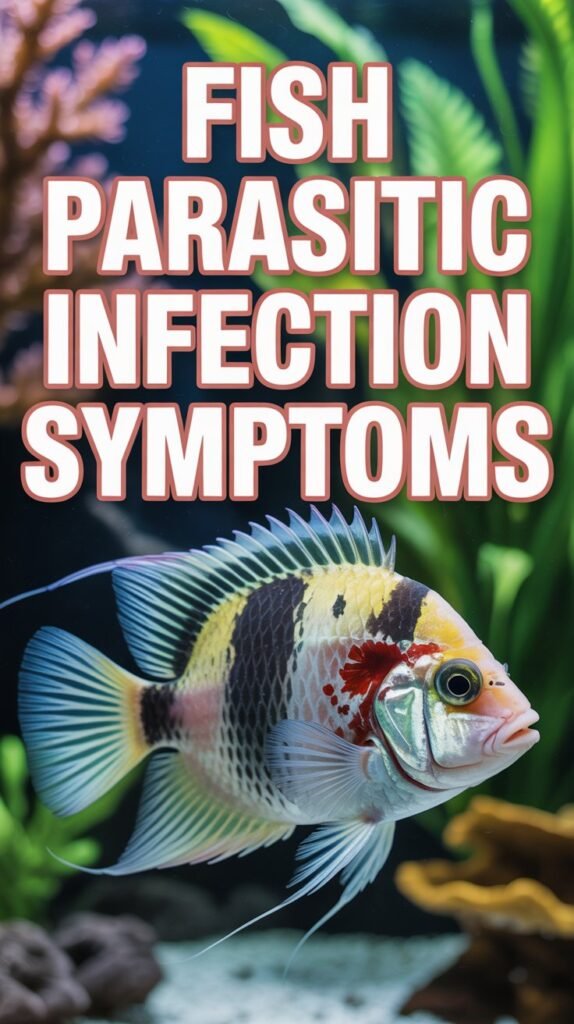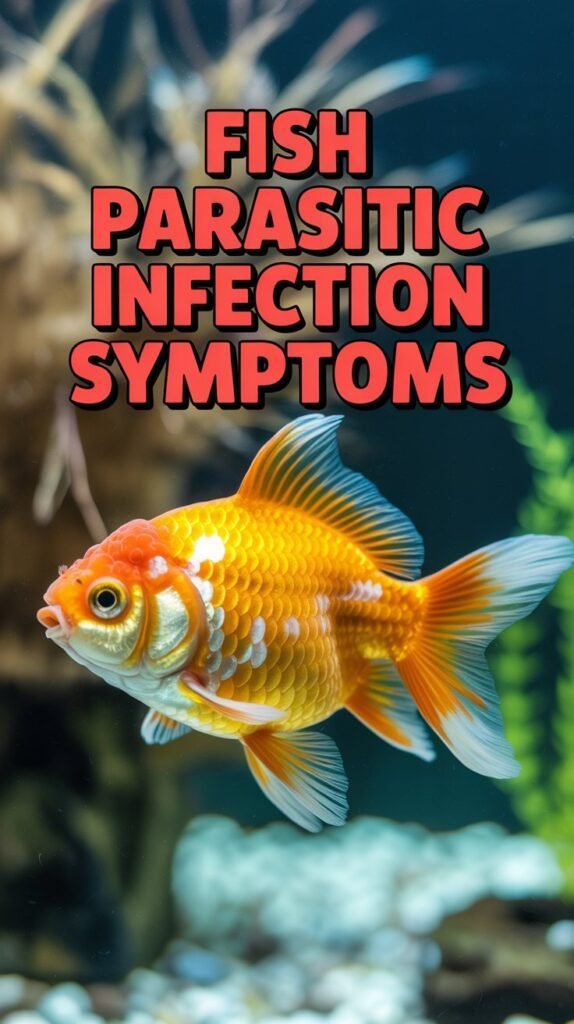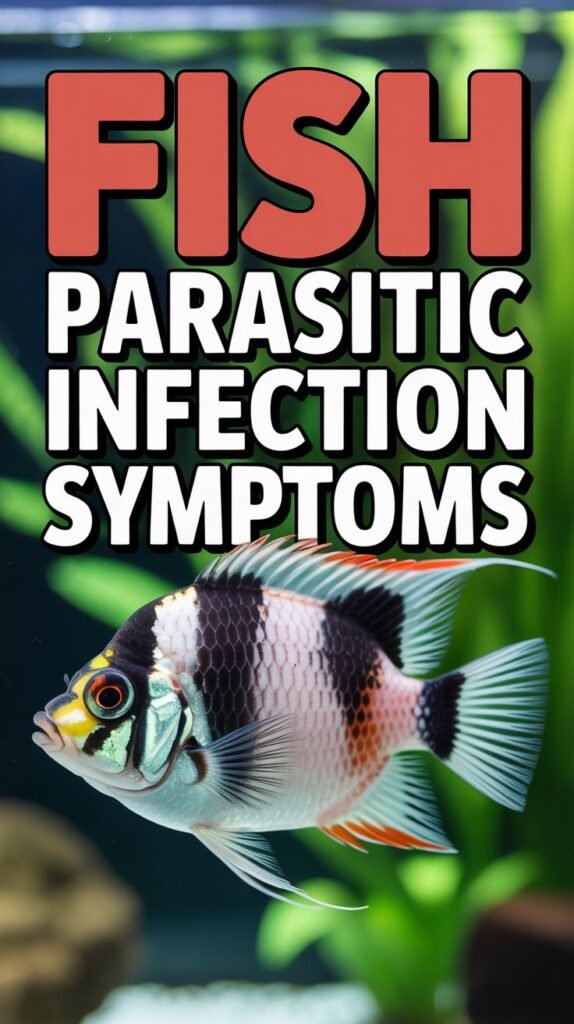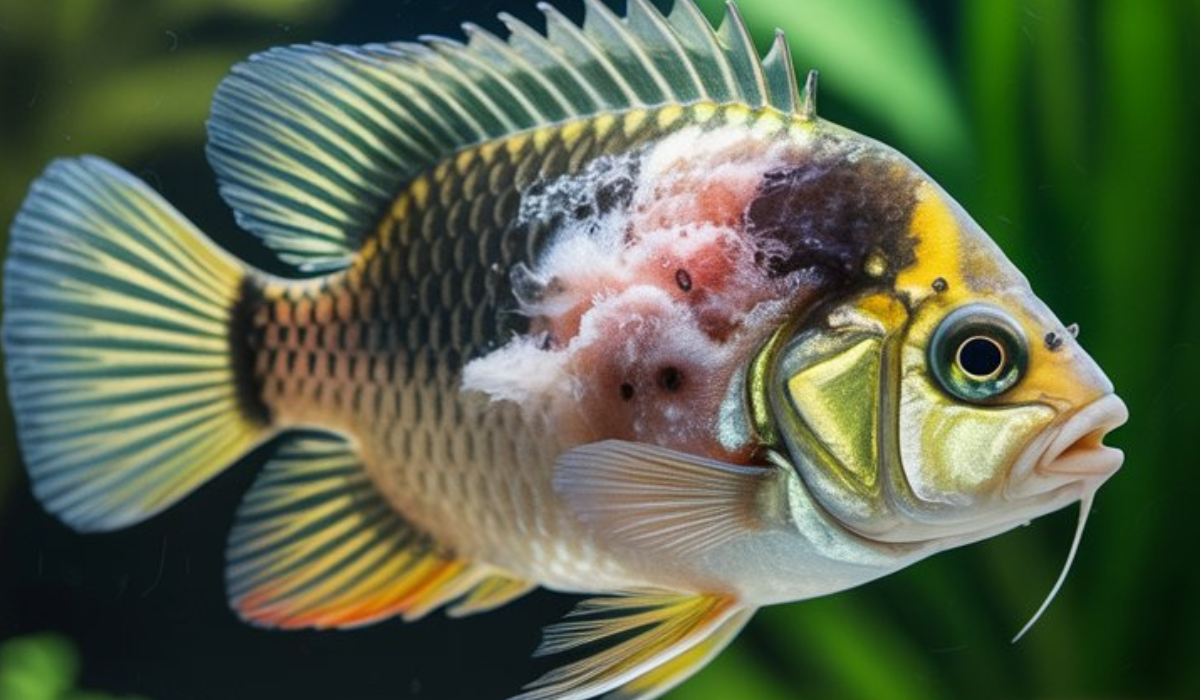Parasitic infections are among the most common yet overlooked health problems worldwide. They affect millions of people every year, often going undiagnosed for long periods because their symptoms can mimic those of other diseases.
From mild digestive issues to severe fatigue, parasitic infection symptoms can vary widely depending on the parasite type, the part of the body infected, and the person’s immune response.
In this comprehensive guide, you’ll learn everything you need to know about parasitic infection symptoms, including causes, types of parasites, diagnosis, and effective treatments. Whether you’re concerned about your health or just want to understand how these organisms affect humans, this article provides all the answers.
What Are Parasitic Infections?
A parasitic infection occurs when parasites — organisms that live in or on a host — invade the body and cause harm. Unlike bacteria or viruses, parasites rely on their hosts for survival and cannot live independently.
They consume nutrients from the host, reproduce, and sometimes cause significant damage to tissues and organs.
Common Types of Parasites

- Protozoa: Single-celled organisms that multiply inside the human body.
- Examples: Giardia lamblia, Entamoeba histolytica, Plasmodium (causes malaria).
- Helminths: Worm-like parasites that live in the intestines or tissues.
- Examples: Tapeworms, Roundworms, Pinworms, Flukes.
- Ectoparasites: Live on the surface of the body, feeding on blood or skin.
- Examples: Lice, Fleas, Mites, Ticks.
Each group can cause unique symptoms, depending on the organ systems they affect.
How Parasitic Infections Spread
Parasites can enter the human body in several ways. Understanding their transmission routes helps prevent infections.
- Contaminated food or water: The most common source of intestinal parasites.
- Poor hygiene: Unwashed hands can transfer eggs or larvae to the mouth.
- Insect bites: Mosquitoes, ticks, and sandflies can transmit parasites like malaria or leishmaniasis.
- Sexual contact: Some parasites, such as Trichomonas vaginalis, are sexually transmitted.
- Skin penetration: Certain parasites, like hookworms, can enter through the skin when walking barefoot on contaminated soil.
Once inside, parasites migrate to organs like the intestines, liver, lungs, or brain, where they feed and reproduce.
General Parasitic Infection Symptoms
Parasitic infections can produce a wide range of symptoms that often depend on the affected body area. However, there are several common warning signs that indicate your body may be hosting parasites:
1. Digestive Problems
Intestinal parasites are notorious for causing gastrointestinal discomfort.
- Abdominal cramps and bloating
- Chronic diarrhea or constipation
- Gas and indigestion
- Unexplained nausea or vomiting
2. Unexplained Fatigue
Parasites consume nutrients meant for your body, leading to nutrient deficiencies and fatigue. Chronic tiredness despite adequate rest may suggest infection.
3. Weight Loss
Because parasites steal food and nutrients, many people experience sudden or unexplained weight loss even when eating normally.
4. Skin Issues
Some parasites cause skin irritation, rashes, or allergic reactions.
- Persistent itching, especially at night
- Red bumps or hives
- Sores from scratching
- Eczema-like patches
5. Anemia
Blood-feeding parasites like hookworms cause iron deficiency, leading to weakness, dizziness, and pale skin.
6. Muscle and Joint Pain
Some parasites migrate through tissues, causing inflammation and pain in muscles or joints.
7. Sleep Disturbances
Restless sleep, teeth grinding (bruxism), and insomnia can be linked to certain parasitic infections that disrupt the nervous system.
8. Mental and Mood Changes
Toxins released by parasites may affect brain chemistry, leading to:
- Anxiety or depression
- Poor concentration
- Brain fog
9. Fever and Sweating
Systemic infections, such as malaria, cause cyclic fever, chills, and sweating as parasites multiply in the bloodstream.
10. Itchy or Irritated Anus
Pinworms often cause anal itching, particularly at night when female worms lay eggs around the anus.
Parasitic Infection Symptoms by Type

1. Intestinal Parasites
Intestinal worms like tapeworms, roundworms, and giardia are among the most common parasites worldwide.
Key Symptoms:
- Abdominal pain and bloating
- Unexplained hunger or loss of appetite
- Worms visible in stool
- Fatigue due to nutrient loss
- Nausea or vomiting
Common Parasites:
- Giardia lamblia
- Ascaris lumbricoides (roundworm)
- Taenia saginata (tapeworm)
- Enterobius vermicularis (pinworm)
2. Blood Parasites
Blood parasites invade red blood cells, causing serious systemic illness.
Key Symptoms:
- Fever, chills, and night sweats
- Headaches and muscle pain
- Anemia and fatigue
- Enlarged spleen or liver
Common Parasites:
- Plasmodium (malaria)
- Trypanosoma (sleeping sickness)
- Babesia (babesiosis)
3. Skin Parasites
Ectoparasites such as lice, mites, and scabies live on or under the skin.
Key Symptoms:
- Severe itching and redness
- Scabs and rashes
- Tiny burrows or bite marks
- Secondary bacterial infections from scratching
Common Parasites:
- Sarcoptes scabiei (scabies mite)
- Pediculus humanus (head lice)
- Demodex (skin mites)
4. Tissue and Organ Parasites
Some parasites invade organs like the brain, eyes, or muscles.
Key Symptoms:
- Seizures or neurological problems (Toxoplasma gondii)
- Vision disturbances (Onchocerca volvulus causes river blindness)
- Persistent cough or chest pain (Paragonimus westermani – lung fluke)
- Muscle pain (Trichinella spiralis – from undercooked meat)
5. Genital Parasites
Sexually transmitted parasites cause irritation and inflammation in the genital area.
Key Symptoms:
- Vaginal or urethral discharge
- Itching and burning sensation
- Pain during urination or sex
- Unpleasant odor
Common Parasites:
- Trichomonas vaginalis (Trichomoniasis)
Parasitic Infections in Humans: Real-World Examples
1. Malaria
- Cause: Plasmodium parasite transmitted by Anopheles mosquitoes.
- Symptoms: Cyclic fever, chills, headache, nausea, and fatigue.
- Risk Regions: Africa, Asia, South America.
2. Giardiasis
- Cause: Giardia lamblia, usually from contaminated water.
- Symptoms: Diarrhea, bloating, greasy stools, and weight loss.
- Common in: Campers, travelers, and areas with poor sanitation.
3. Toxoplasmosis
- Cause: Toxoplasma gondii, from undercooked meat or cat feces.
- Symptoms: Flu-like illness, swollen lymph nodes, fatigue.
- Note: Dangerous for pregnant women and immunocompromised individuals.
4. Hookworm Infection
- Cause: Ancylostoma duodenale or Necator americanus entering through the skin.
- Symptoms: Itchy rash (ground itch), anemia, fatigue, and abdominal pain.
5. Trichomoniasis
- Cause: Trichomonas vaginalis transmitted sexually.
- Symptoms: Genital irritation, discharge, and discomfort.
- Prevention: Safe sexual practices and regular screenings.
Diagnosing Parasitic Infections

Because parasitic infection symptoms overlap with many diseases, accurate diagnosis is crucial.
1. Stool Examination: Detects eggs or cysts of intestinal parasites.
2. Blood Tests: Identify antibodies or parasites in the bloodstream (e.g., malaria).
3. Imaging (CT, MRI, Ultrasound): Used for tissue infections (e.g., cysts in brain or liver).
4. Skin Scraping or Biopsy: Helps identify mites or larvae.
5. Urine or Genital Swabs: Diagnose urogenital parasites like Trichomonas.
Your doctor may combine these tests for confirmation, especially when symptoms persist without clear cause.
Treatment for Parasitic Infections
The good news is that most parasitic infections are treatable with specific antiparasitic medications.
1. Antiparasitic Drugs
- Metronidazole / Tinidazole: Treats Giardia and Trichomonas infections.
- Albendazole / Mebendazole: Effective against intestinal worms and roundworms.
- Praziquantel: Used for flukes and tapeworms.
- Ivermectin: Works against scabies, strongyloidiasis, and lice.
- Chloroquine / Artemisinin: Common malaria treatments.
Always follow medical supervision when taking these drugs, as incorrect dosage can cause resistance or side effects.
2. Supportive Treatment
- Hydration: Replace fluids lost through diarrhea or vomiting.
- Iron Supplements: Treat anemia caused by blood-feeding parasites.
- Pain Relief: For muscle aches and inflammation.
- Nutritional Support: Rebuilds immunity after infection.
3. Natural Remedies (Supportive Only)
While not replacements for prescribed medications, some natural options support recovery:
- Garlic: Has antiparasitic and antimicrobial properties.
- Pumpkin Seeds: Traditionally used to expel intestinal worms.
- Papaya Seeds: Contain enzymes that may help eliminate parasites.
- Probiotics: Restore gut flora after infection or antibiotics.
Always consult a healthcare provider before trying herbal remedies, especially during pregnancy or chronic illness.
Preventing Parasitic Infections
Prevention is always better than cure. You can reduce the risk of infection through simple hygiene and lifestyle measures:
- Wash hands before eating or preparing food.
- Drink safe, filtered, or boiled water.
- Cook meat thoroughly.
- Avoid raw or undercooked seafood.
- Wash fruits and vegetables properly.
- Use insect repellents in mosquito-prone areas.
- Wear shoes when walking outdoors to prevent skin penetration by larvae.
- Practice safe sex to avoid sexually transmitted parasites.
- Regular deworming if you live in high-risk regions.
- Maintain personal and pet hygiene.
When to See a Doctor
You should consult a doctor immediately if you experience:
- Persistent diarrhea or vomiting
- Severe abdominal pain
- Blood in stool
- Continuous itching or rash
- Unexplained weight loss or fatigue
- Fever and chills after travel to tropical regions
Early diagnosis ensures faster recovery and prevents complications.
Complications of Untreated Parasitic Infections
If left untreated, parasitic infections can lead to serious health issues:
- Chronic malnutrition and weight loss
- Anemia due to blood loss
- Organ damage (liver, brain, lungs)
- Developmental issues in children
- Infertility in cases of untreated genital infections
Prompt treatment not only eliminates parasites but also restores overall well-being.
Conclusion
Parasitic infections may sound alarming, but with awareness, hygiene, and early medical attention, they are completely manageable. Recognizing parasitic infection symptoms — such as fatigue, digestive issues, itching, and weight loss — can help you seek treatment before complications arise.
Modern antiparasitic medications like albendazole, metronidazole, and praziquantel are highly effective, while preventive habits like clean water, proper food handling, and insect protection can keep you safe.
Your health is in your hands — stay informed, stay clean, and consult a healthcare professional if any suspicious symptoms appear.
FAQs About Parasitic Infection Symptoms
1. What are the first signs of a parasitic infection?
The earliest signs include fatigue, bloating, diarrhea, unexplained weight loss, and itchy skin or anus. Some people may also experience abdominal pain and nausea.
2. Can parasites cause fatigue and brain fog?
Yes. Parasites steal nutrients and release toxins that interfere with normal body functions, leading to tiredness and poor concentration.
3. Are all parasitic infections contagious?
Not all. Some spread through contaminated food or insect bites, while others like Trichomonas spread through sexual contact.
4. Can I have parasites without symptoms?
Yes. Many people are asymptomatic carriers, especially with mild infections. Routine stool or blood tests can detect hidden parasites.
5. How long do parasitic infections last?
Duration depends on the parasite type and treatment. With proper medication, most clear within 1–3 weeks.
6. What foods help get rid of parasites naturally?
Garlic, pumpkin seeds, papaya seeds, and probiotics support the body during parasite treatment but cannot replace prescription medications.
7. Can parasites cause skin problems?
Yes. Skin parasites like scabies and lice cause itching, redness, and rashes. Internal parasites can also cause allergic skin reactions.
8. How are parasitic infections diagnosed?
Through stool tests, blood samples, imaging scans, or tissue biopsies depending on symptoms and suspected parasite type.
9. Do I need to deworm regularly?
If you live in or frequently travel to regions with poor sanitation, yes — deworming every 6 months is advisable.
10. How can I prevent parasitic infections?
Maintain good hygiene, wash food, drink clean water, wear shoes outdoors, and avoid mosquito or tick bites.

